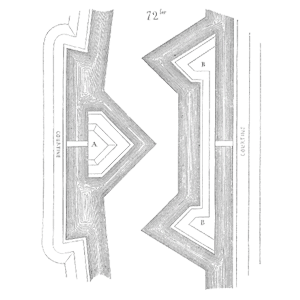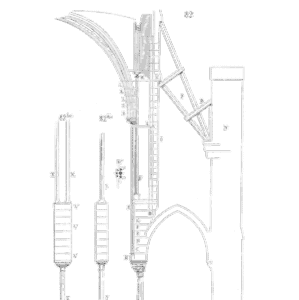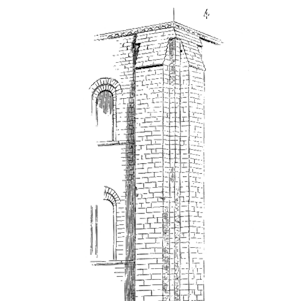
Fundamentals of Failure Analysis
podcast episode with speaker Fred Schenkelberg
Failure analysis is not just about finding the root cause of a failure; it’s also about preventing future failures. Yet, the process starts much like a crime scene. Understanding some basic steps and approaches helps you fully grasp the failure and its impact or implications.
Sometimes, just identifying a failure is the difficult part. Sometimes, it’s the collection of clues or evidence. Sometimes, it’s the skills and tools needed to fully understand the root cause. The intent of any failure analysis is to understand the problem well enough to craft and implement short and long-term solutions.
Let’s explore the basics of failure analysis, the basic steps, and some ways to identify and avoid ways a failure analysis may fail. If you like, grab your Sherlock Holmes cap and magnifying glass and prepare to improve your ability to learn from every failure.
This Accendo Reliability webinar was originally broadcast on 11 November 2025.
Related content:
Data Collection Techniques for Failure Analysis episode
Using Failure Analysis to Improve Equipment Reliability episode
Failure Analysis Case Studies episode
Failure Analysis of Component Failures and Manufacturing Problems article
Policy – Minimum Acceptable Failure Analysis episode

Finding Value with Reliability Tasks
This webinar discusses the importance of estimated value and helps you discover and state the value of common reliability activities.

Life Cycle Cost Analysis for a Reliability Engineer
Life cycle cost: Let’s explore estimating the total lifecycle costs for a complex system from the point of view of a reliability engineer.

Predicting the Value of a Reliability Goal in Your Organization
When setting a reliability goal, considere the value that reliability goal may provide. Let's explore three ways you can estimate the value.

Fundamentals of Cost of Poor Reliability
A discussion of the wide range of the impact of the cost of poor reliability on engineers, organizations, customers, and society.

Fundamentals of the Cost of Unreliability
When a product or system fails there is a consequence. Often there is a loss of value. A warranty replacement costs money.

The Reliability Value Map. It is a thing.
A value map is an organized chart that helps you track down every possible ‘good’ thing that reliability can do for you.

Reliability Making Money
You need to work out how many spare parts, so put some numbers in a computer and use the that result. Right?

Reliability Making Money 2 — Case Study
Let's explore a Weibull plot and enjoy reliability making money. In this episode, we look at an actual Weibull plot for an actual example

How to Make a Decision
This webinar takes you through the key steps of decision-making – particularly relating to reliability engineering.

9 Ways Reliability is Green Engineering
Visit a scrap yard to witness the impact of ‘getting a new car’. Let’s explore the many ways creating a reliable product is beneficial.

10 Reasons to Do Reliability
Besides discussing what is involved in reliability, let's explore a short list of reasons to use reliability thinking with your team.

SPC Sample Size Impact on SPC
In this webinar, we explore the impact that chart selection and sample size have on chart sensitivity (the ability to detect changes).

Reliability and Statistical Process Control
Let’s explore some cases where effectively using statistical process control will enhance your product’s reliability performance.

Understanding and Controlling Process Variation
Let’s discuss process variation and how to measure, monitor, and control processes to minimize the differences from one part to the next.

10 Keys for Maximizing the Benefits of Your SPC Program
Progressive manufacturers use control charts to “listen” to their processes to detect and rectify potentially harmful changes.

How do I link Process Capability Indices to Number (PPM) Defects?
if you need to learn a bit more about manufacturing and how we measure quality in general? Join us for this webinar.

What is Statistical Process Control or SPC?
You may have heard of Statistical Process Control, 6-sigma, Shewhart, the Japanese Economic Miracle, X̅ – R Charts … or perhaps none of them.

What is Process Capability Analysis (PCA)?
A process is considered ‘capable’ if it creates products that, with production natural variation, are still within what ‘good’ looks like.

Fundamentals of Control Charts
Statistical control charting (SPC) is a method for monitoring and determining whether a process is in control or stable.

Fundamentals of Process Capability
Let’s explore the steps necessary to obtain valid and valuable process capability ratios. Then, let’s examine how to use this information.

Successful Career in Reliability Engineering
This discussion explores the seven key traits—talented, professional, networked, positive, valuable, studiousness, and mentoring ability.

Getting Started with Reliability Engineering
Reliability Engineering is a daunting field. The technical breadth of skills spans material science to statistics.

How to Prepare for the ASQ CRE Exam
Let's discuss the exam and certification in general, then how to prepare for the exam and exam day strategy for this timed test.

Does a Certification Make You a Professional Reliability Engineer?
Certifications based on your reliability engineering knowledge does not make you a professional. It is the applies knowledge that does.

How to Build Your Influence as a Reliability Engineer
Build your influence: This webinar explores how we, as reliability professionals, can improve our ability to influence.

A Review of the 2018 ASQ CRE Body of Knowledge
With the changes to topics, it attempts to reflect what reliability engineers do daily. Let’s take a close look and discuss what it means.

Improve Your Reliability Teaching Skills
As a reliability professional you will be asked to teach. Let’s explore becoming an amazing teacher and improve your effectiveness.

How is Reliability Engineering Changing?
What’s coming to reliability engineering in 2020 and beyond? Let’s explore a few trends and their implications.



 Ask a question or send along a comment.
Please login to view and use the contact form.
Ask a question or send along a comment.
Please login to view and use the contact form.
Leave a Reply